What's hot and what’s not in growth, value, dividends and infrastructure
Investment teams focusing on Australian and global equities, infrastructure, and alternatives provided insights on how their portfolios are positioned currently, at the recent 2024 Pinnacle Insights Series.
Portfolio managers and senior investors from the following funds presented:
- Large-cap global and Australian equities asset manager Hyperion Asset Management
- Small-cap investor Spheria Asset Management
- Emerging companies-focused asset manager Longwave Capital
- Infrastructure-focused fund manager Palisade Investment partners, and
- Private credit asset manager Metrics Credit Partners
- Australian equity income specialist Plato Investment Management
They provided views on a wide range of topics including artificial intelligence (AI), the Australian retail sector, dividend outlook, and private debt. We’ve summarised their insights below, including more than a dozen stocks – and even a few investors should consider avoiding.
Hyperion: How we bought REA Group (ASX: REA) for 84 cents
Six key qualities underpin the best Australian and international quality structural growth stocks in which Hyperion Asset Management invests, said investment specialist Jolon Knight at the recent 2024 Pinnacle Insights Series event.
These attributes include:
- Disruptive technologies/strategies,
- Sustainable competitive advantages,
- Structural tailwinds,
- Innovative, creative, customer-centric culture and management,
- Capital-light business models, and
- Large total addressable markets.
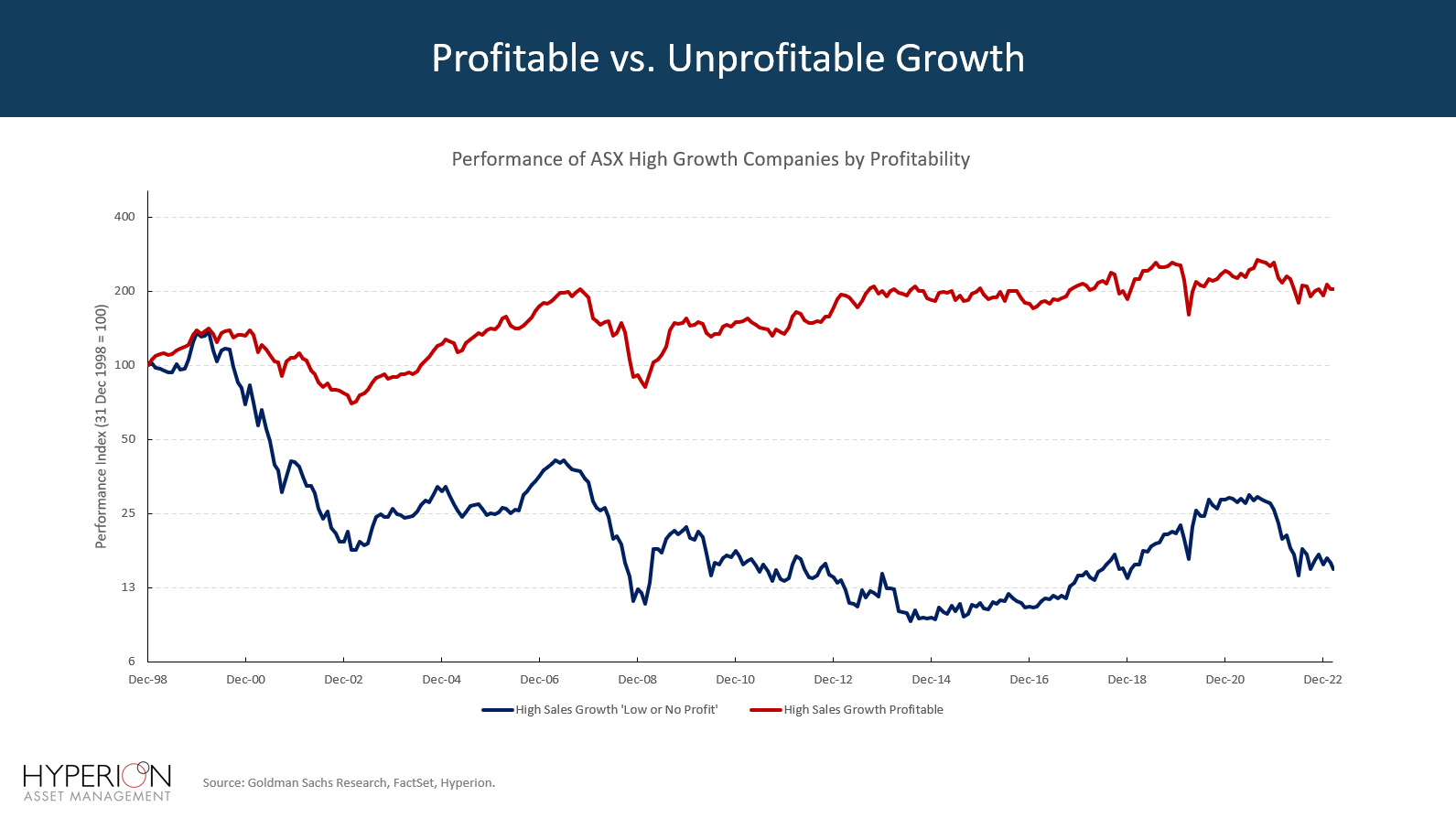
“We don't own miners, heavy industries, or producers. Many of these businesses are highly sensitive to the economic conditions around them. We want absolute market leaders that can grow by taking market share. And in that, they're less sensitive to economic shocks. We also avoid bad early-stage concepts and start-ups,” Knight said.
“A great example is REA Group (ASX: REA), which we bought in 2004 for 84 cents and still own today. We could see back then they were building something unique and innovative.”
In healthcare, Knight said Hyperion is positive on “recovering” ASX healthcare stocks including:
In technology, he also named Block Inc (ASX: SQ2) and Xero (ASX: XRO) as stocks poised to outperform in the coming years.
“We caught up with the founder, Jack Dorsey, in Melbourne last year and our confidence in Block rose significantly after meeting and seeing him back in the field. The share price has doubled, essentially, since Jack started running the company again,” Knight said.
“Xero has new management and we’re really starting to see some cost control and better execution.”


Spheria Asset Management: AI “Hyperbole” and 2 stocks to watch
For all the excitement artificial intelligence generates, investors need to be wary of hyperbole surrounding AI and data centre stocks, warned Marcus Burns, portfolio manager at Spheria Asset Management.
Burns compared the current market hype to recent bubbles in the Australian market over the past decade. These include the vocational education sector, buy now pay later (BNPL) in 2021, and more recently lithium stocks.
“We are fans of AI. I think it's real, there’s real change for many businesses. But the capitalisation in many areas and particularly in data centres in Australia, we think is massively overhyped.”
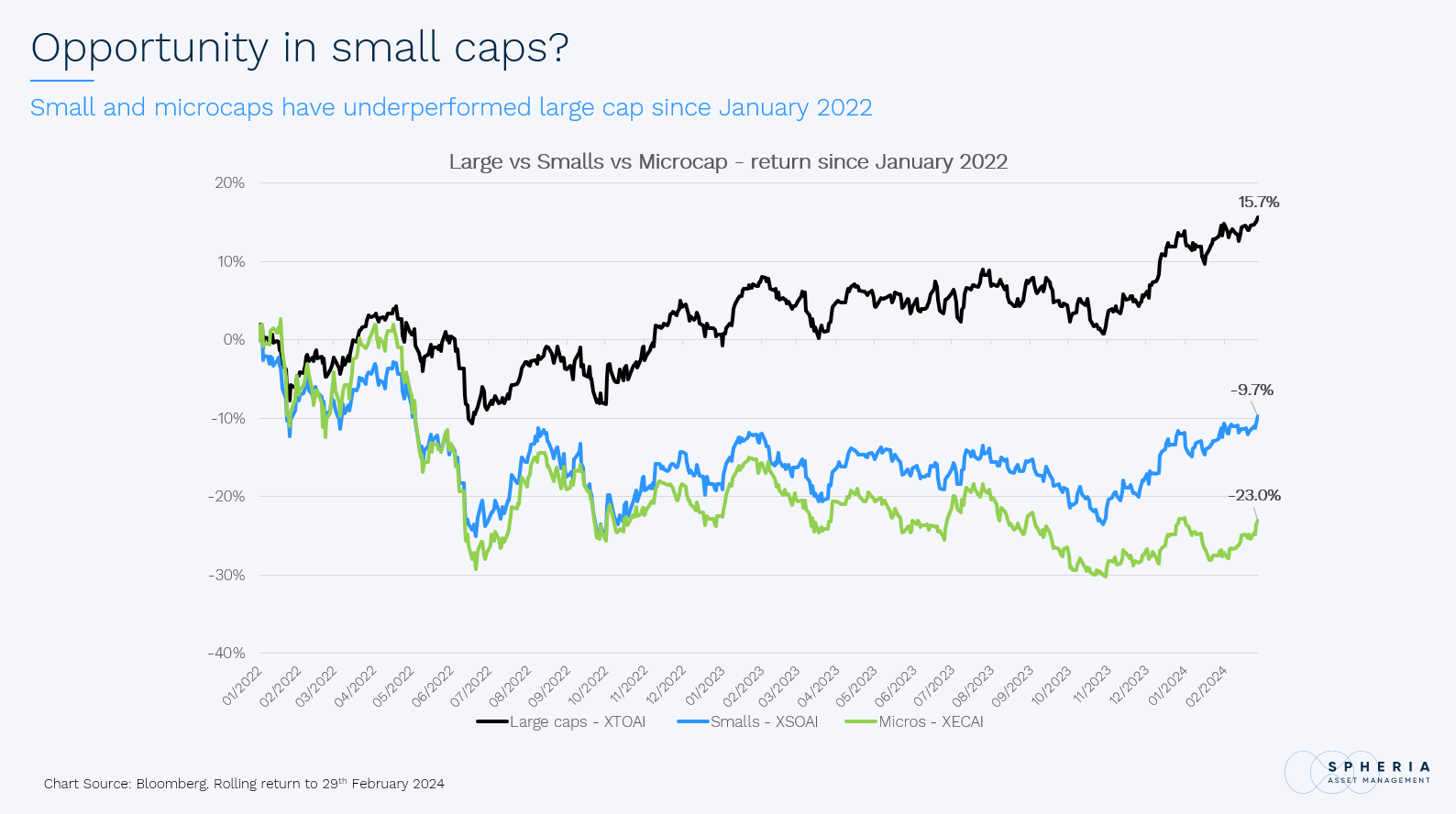
Burns called out ASX-listed data centre owner NextDC (ASX: NXT) as a prominent example.
“If you want to justify the current share price, based on an 11% return on capital, you've got to invest a further $66 billion of investor capital on new data centres Currently, they’ve got $3 billion invested, so they’ve got to put 20 times more capital in, to get the current share price on a DCF basis.
He also emphasised the huge power consumption of data centres, which is used primarily to keep them cool.
“You've got to go from burning around 141 megawatts to over 3.2 gigawatts. So, 4% of Australia's power has got to go into NextDC to justify the current share price,” Burns said.
“Currently its return on capital is 2%, woefully bad, and it's trading at four times book value.”
As a comparison, he noted an unrelated facility in the same area, an Abacus Storage King site, is capitalised at $14 million, versus a $290 million capitalisation for Next DC’s first data centre at Macquarie Park (S1).
“Admittedly, the Storage King is roughly half the site size at 4,500 square metres. It's storage. It doesn't have any computers in there. There's no power going into it. But it gives you some sense of that extraordinary difference,” Burns said.
“Because NEXTDC is capitalised at four times book value, the market is saying the Macquarie Park Data Centre is worth $1.2 billion, effectively, even though they paid $290 million for it,” Burns said.
“To give you some other idea, you could buy a skyscraper in Sydney today for $400 million – just to put that in context when you're thinking about the bubbles that might be existing right now.”
Burns also named a couple of stocks, starting with Harvey Norman (ASX: HVN). Burns believes the sell-down of the stock has been overdone, even though the retail sector has been “on the nose” over the last 12 months given the difficult economic backdrop of “sticky inflation and the mortgage cliff”.
He highlighted Harvey Norman’s strong free cash flow generation, $4 billion property portfolio, and “Very attractive valuation of only around 6 times earnings before interest and tax (EBIT)”.
“The free cash flow conversion at Harvey Norman has been incredibly strong at more than 90% for more than 10 years. Last year the stock went down to about $3.50, which gave a market capitalisation of about $5 billion,” Burns said.
“It owns $4 billion of property, tangible property in Australia and internationally, so we're paying $1 billion for the retailer. And it was making about $300 million of EBIT, so if you sold property off, you’re paying about three times earnings for that.”
Discussing Supply Network (ASX: SNL), Burns describes the commercial supplier of after-market automotive parts as one of the “best-performing Australian small caps that almost no one has heard of.
“The return metrics are phenomenal. There have only been some nominal acquisitions in 10 to 15 years, and the return on capital has grown from the mid-20 % range to more than 50% today,” Burns said.
“It supplies truck and bus parts to independent mechanics who then fix trucks. It doesn't sound very glamorous, but it’s a great business, it has a passionate management team, and it remains largely undiscovered.”


A super retailer and 2 wealth platforms to watch
Longwave Capital Partners’ CIO David Wanis discussed Super Retail Group (ASX: SUL) – the name behind the Supercheap Auto, Rebel, BCF, and Macpac brands – and two wealth platforms as stocks to watch.
On Super Retail, he singled out the execution of strategy by the management team as the primary driver of its success.
“It has been second-to-none and they've outperformed all their competitors in each of those categories to deliver free cash flow for share growth,” Wanis said.
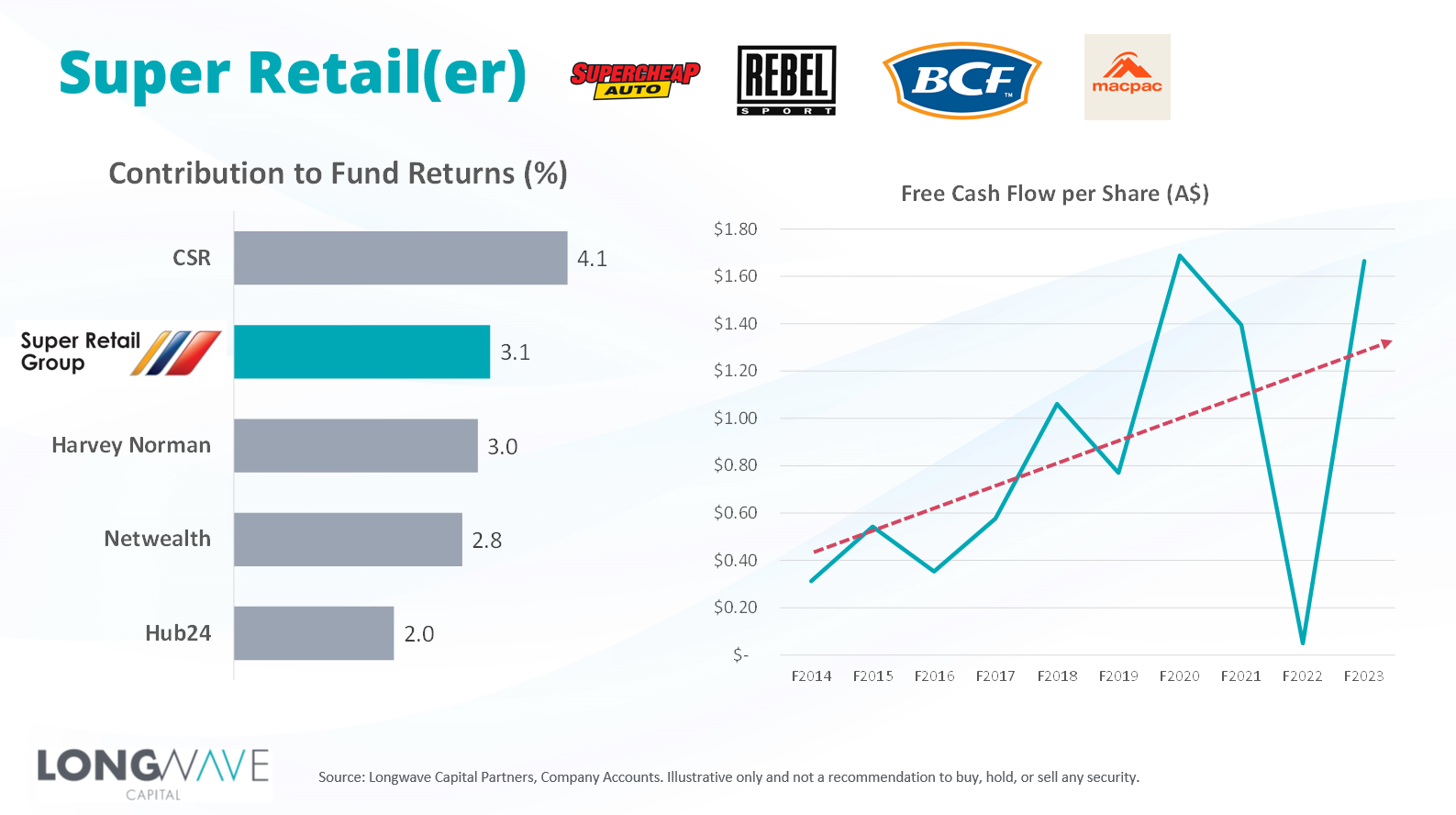
Wealth platforms HUB24 (ASX: HUB) and Netwealth (ASX: NWL) were also highlighted.
“They’ve done a fantastic job of growing market share, compounding earnings, and taking share away from legacy wealth management platforms,” Wanis said.
Despite questions over their valuations, Wanis emphasised they are high-quality growth businesses.
“They tend to grow into, and then often exceed, the very rich valuations the market focuses on in the short term,” he said.
Investing in Australian airports, shipping, and energy infrastructure
Turning to a different market area, Palisade Group managing director James Hann shared insights into how the $4 billion private markets manager invests across critical Australian infrastructure.
Palisade runs a diversified portfolio of around 25 assets, spanning the key sub-sectors of core infrastructure both here in Australia and in the US.
Hann highlighted several portfolio assets to which Palisade provides investment exposure. The first is the Casey Hospital, a 229-bed public hospital in Berwick, Melbourne, a 25-year public-private partnership asset that Palisade entered into with the Victorian government.
“We manage the facilities on behalf of the owner. And in exchange for that, we receive a fixed payment every year from the government that escalates at CPI,” he said.
He also discussed the Port of Portland, a deep-water seaport servicing Victoria and South Australia that is 100%-owned by Palisade.
Other assets owned by the Pinnacle affiliate include the Sunshine Coast Airport and a large portfolio of wind and solar energy farms across Australia – all described as “mid-market” in their scale.
"The key benefit of operating the mid-market and buying controlling stakes in generally smaller value assets is that we can assemble a very diversified portfolio, so we don't have one or two huge investments where we're exposed to the outcomes of those investments," Hann said.
A better way of doing what the banks have done for centuries
Also on private Australian Markets, Metrics Credit Partners' Graham McNamara explained how, as Australia’s largest non-bank lender, his firm is “simply” doing the work that traditionally made big banks and their shareholders a lot of money.
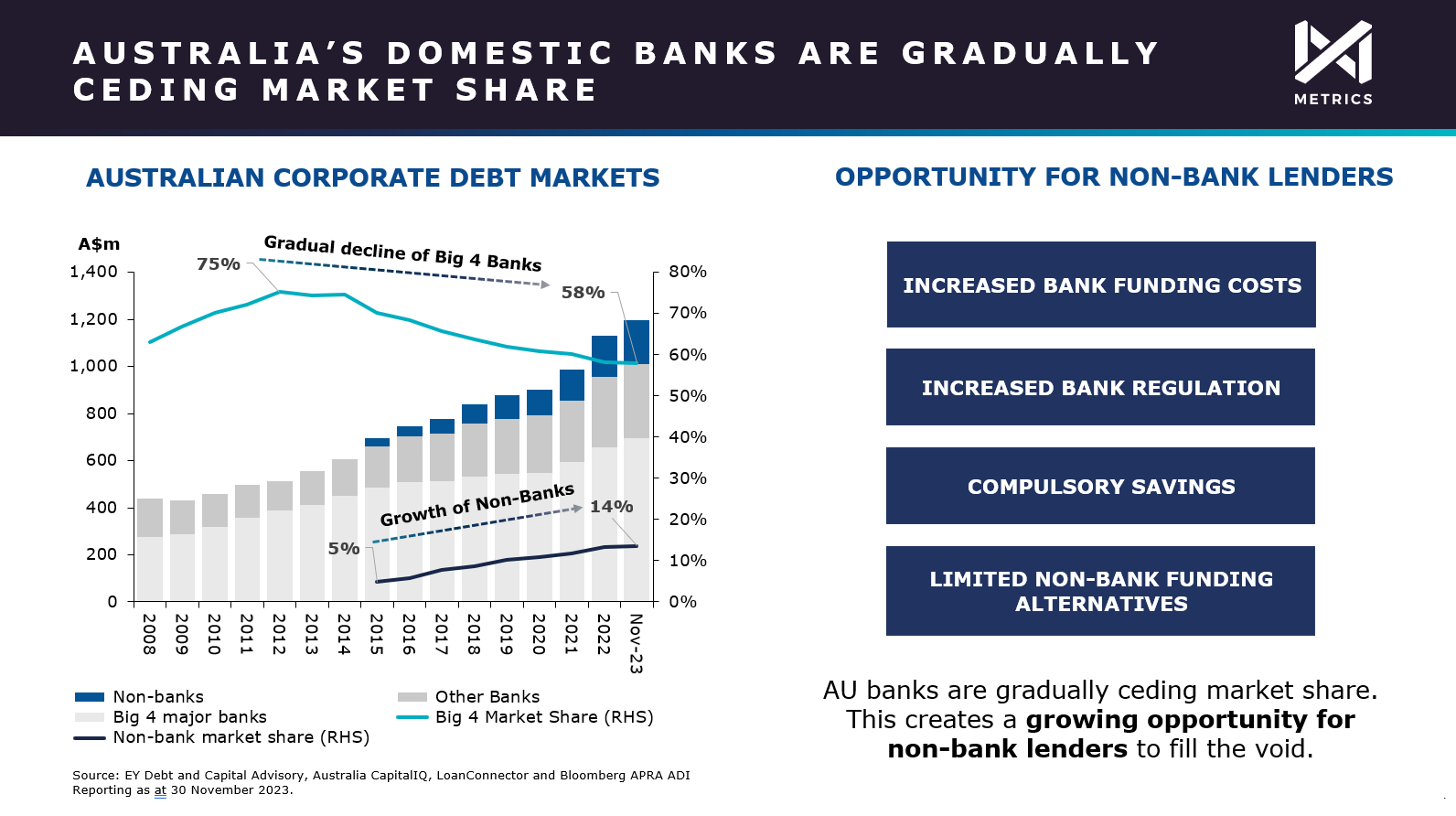
“What is private debt? Many people think it's new. It's not new. It's what banks have been doing for hundreds of years. What's new is that we've opened it up to enable investors to directly access this asset class for income,” said McNamara, a managing partner at Metrics.
He explained the market for corporate lending in Australia is expansive and highly attractive for investors.
“Private debt is really borrowers’ only source of debt for corporate Australia, for borrowers,” McNamara said.
“We don't have a corporate bond market, with only those with strong investment-grade ratings able to access this market, and there's not that many of them in Australia.”

The bright spots for dividends and 3 traps to avoid
Finally, Dr Don Hamson from Plato Investment Management provided an update on the outlook for dividends and wrapped up some key results from the latest ASX reporting season.
Plato, which manages around $14 billion, specialises in tax-effective dividend income investing for retirees.
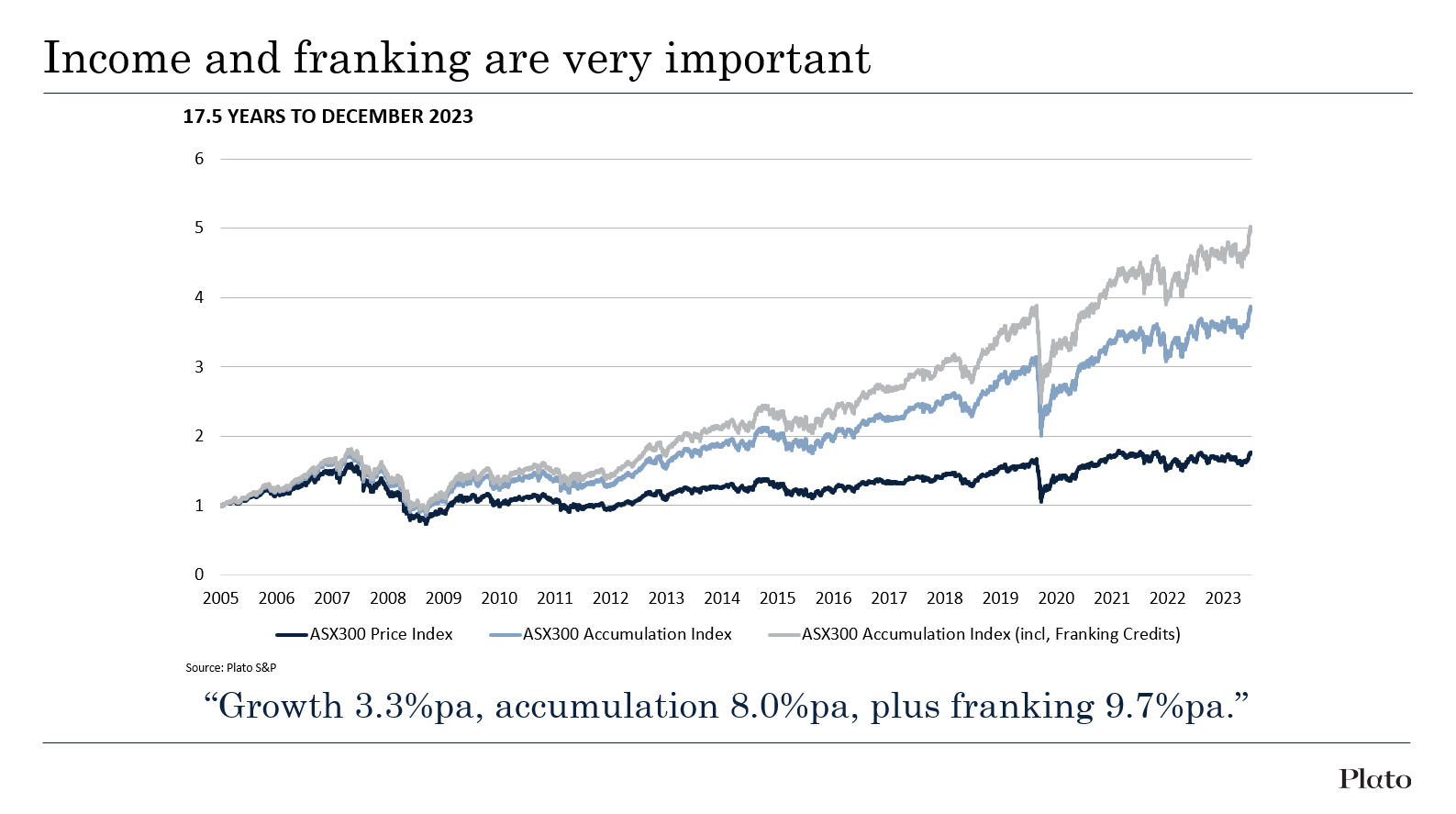
Hamson believes income investors should be satisfied with the latest round of company half-year results, which defied expectations and turned out better than most anticipated.
“The average dividend increase was 6%, this was positive. The median, which is a better indicator of the average company, was up 2.7%,” he said.
In addition, 58% of companies increased dividends, 15% were flat compared to last year, and 27% reduced their dividend outlook.
Hamson named QBE Insurance (ASX: QBE, Rio Tinto (ASX: RIO), Fortescue (ASX: FMG, and Ampol (ASX: ALD) among his top picks for dividend income.
As for potential dividend traps, Pilbara Minerals (ASX: PLS), South32 (ASX: S32), and Magellan (ASX: MFG) were mentioned stocks for income investors to consider avoiding.

2 topics
20 stocks mentioned
6 funds mentioned
1 contributor mentioned

